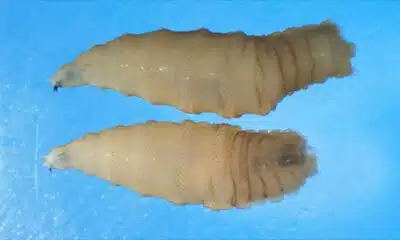News from the South - Texas News Feed
Here are the Texas Democrats eyeing statewide runs in 2026
“Here are some of the Texas Democrats eyeing statewide runs in 2026” was first published by The Texas Tribune, a nonprofit, nonpartisan media organization that informs Texans — and engages with them — about public policy, politics, government and statewide issues.
Sign up for The Brief, The Texas Tribune’s daily newsletter that keeps readers up to speed on the most essential Texas news.
With the legislative session over, Texas Democrats are turning their attention to the 2026 elections for the state’s most powerful offices — with the hope that midterm backlash against the Trump administration will help the party reverse course from its recent blowout losses and snap a three-decade losing streak.
More than a dozen statewide offices will appear on next year’s ballot, including governor, lieutenant governor and attorney general, in addition to one of Texas’ two U.S. Senate seats. The comptroller, land and agriculture commissioners, and several statewide judicial seats are also up for reelection.
Texas Democrats have struggled to mount competitive statewide campaigns since 2018, when Democrat Beto O’Rourke fell just short of unseating U.S. Sen. Ted Cruz in what would have been the party’s first statewide win since 1994. Their optimism has since been dashed by a failed push to flip the Texas House in 2020, O’Rourke’s double-digit loss to Gov. Greg Abbott in 2022 and a 2024 cycle that saw President Donald Trump carry Texas by 14 percentage points and Cruz win reelection by more than triple his 2018 margin.
But Democrats smell an opportunity to finally break through next year, the first midterm under Trump since their near-miss six years ago. Also fueling Democratic hopes is the prospect of Attorney General Ken Paxton, the hardline standard-bearer who has endured numerous scandals, leading the ballot if he topples incumbent U.S. Sen. John Cornyn in the GOP primary.
At least six rising or already prominent Democrats have seen their names floated for one of the top four statewide offices — a pileup of potential candidates that is poised to come into focus over the next few months, with Democrats hoping to present a full, cohesive slate of candidates who can take on the Trump administration, message effectively against Republicans, fundraise and blanket the state ahead of the election.
Several are looking closely at the Senate race and the chance to run against Paxton, who has led Cornyn by a wide margin in early polls. Those considering a run include two statewide campaign veterans: O’Rourke and former U.S. Rep. Colin Allred, who lost to Cruz last year by 8.5 points while overperforming the top of the ticket. Also in the mix are U.S. Rep. Joaquin Castro of San Antonio and state Rep. James Talarico of Austin.
O’Rourke has hosted several town halls around the state in recent months, including in Republican congressional districts, and said in April he would run for Senate “if” Texans want him to.
In a statement, he continued to leave open the possibility of a statewide run, saying, “With so many of our neighbors and families being hurt right now, I’ll continue standing up for the people of Texas — whether that’s holding these town hall meetings, organizing and registering voters or running to serve and deliver for every person in this state.”
A prodigious fundraiser with high name ID, O’Rourke would also enter the race with clear political baggage, after losing two statewide campaigns and failing to catch fire in a 2019 presidential run, during which he staked out numerous progressive stances that stymied his appeal to right-leaning moderates when running for governor.
Allred, a Dallas Democrat and former NFL linebacker who was endorsed by Republican U.S. Reps. Liz Cheney of Wyoming and Adam Kinzinger of Illinois, has also said he is “seriously considering” another Senate run and would make a decision this summer.
Though Allred was criticized by some Democrats for not running aggressively enough last year, he outpaced then-Vice President Kamala Harris’ margin atop the ticket by more than 5 percentage points. In a June interview on the Dallas-based Lone Star Politics show, Allred said he would run “differently” this time around, now that he’s out of Congress.
A May poll by Texas Southern University found that 45% of voters had a favorable opinion of Allred, the highest proportion of the six potential Senate candidates surveyed.
“I’m looking at it and seriously considering it,” Allred told the Dallas Morning News in March. “This is a time for everybody to realize just what’s at stake and how important it is that we all stay involved.”
While Allred and O’Rourke are widely known from their previous statewide bids, Castro and Talarico would start from scratch among most voters outside their districts.
Talarico, a seminarian and former public school teacher with a frequently viral social media presence, spent much of the legislative session creating moments of contrast with Republicans on issues like school vouchers and displaying the Ten Commandments in public school classrooms. He is often described as one of Texas Democrats’ strongest communicators.
“I’m having conversations about how I can best serve Texas, and that includes the Senate race,” Talarico, who declined to comment for this story, told POLITICO this month. “But in my training as a pastor, you learn the importance of listening and how hard it is to truly listen. With so much at stake for Texas, I’m trying to listen more than I talk right now.”
Castro, who has represented his San Antonio-based district in Congress since 2013 after serving 10 years in the Texas House, has spoken to donors and party experts in recent months about the Senate race while holding town halls in both red and blue districts across the state.
He was tapped in 2021 by then-House Speaker Nancy Pelosi to help build the case against Trump over the Jan. 6, 2021 attack on the Capitol for the president’s second impeachment.
San Antonio Mayor Ron Nirenberg, who is term-limited after this year, has also seen his name thrown in the mix for Senate or to take on Abbott or Lt. Gov. Dan Patrick, though he has emphasized a focus on closing out his tenure and ensuring a smooth transition to the next mayor, Gina Ortiz Jones, over the next few weeks. He has not said anything publicly about his 2026 aspirations.
Most of the would-be Democratic candidates have voiced interest in the U.S. Senate race, with little chatter about who will step forward for the tall order of challenging Abbott, who has walloped all three Democratic gubernatorial candidates he has faced and established himself as the most prolific political fundraiser in Texas history.
Further down the ballot, the attorney general post will be open for the first time since 2014 as Paxton leaves office to pursue his Senate bid. And Comptroller Glenn Hegar is departing at the end of the month to become chancellor of the Texas A&M University System, meaning the comptroller seat will either be open or defended by an unelected incumbent, depending on whether Hegar’s Abbott-appointed successor decides to seek a full term.
Democratic state Sen. Nathan Johnson, a Dallas lawyer, is circling a likely run for attorney general, though he said that he had yet to make a final decision and had received encouragement to run for governor, lieutenant governor and comptroller.
“When I do decide, it will be a calculation of where I think I could be most useful, both from the standpoint of electoral viability and service in the office,” said Johnson, who can run without giving up his Senate seat.
Two Republicans have already launched campaigns to succeed Paxton on the GOP ballot: state Sen. Mayes Middleton of Galveston and former Paxton aide and Department of Justice Trump appointee Aaron Reitz.
Candidates in both parties have until early December to file for the 2026 ballot, though the scope of who is running for which office will likely shake out well before then, with candidates looking to have enough runway to build up their campaign war chests and start introducing themselves to voters. Allred, for instance, launched his Senate campaign in May 2023, and O’Rourke got into the Senate race against Cruz in March 2017.
“There’s a funneling effect, and we’re near the bottom of the funnel now,” Johnson said, adding that there were discussions about “what might it look like if different people run in different places.”
“I’m thinking of this in terms of a functioning machine with different parts,” he added. “If we have everybody vying to play one single part, the machine’s not going to work.”
State Rep. Vikki Goodwin of Austin has already announced her bid for lieutenant governor, giving up her safe Texas House seat to take on Patrick, the three-term Republican with more than $33 million in campaign funds and no shortage of conservative support.
And while Abbott maintains a solid 44% approval rating — slightly better than where he stood at the same point four years ago, according to the Texas Politics Project — he is under pressure to veto an unpopular ban on THC products spearheaded by Patrick and approved by the Legislature this session. Democrats hope his next move could create an opening for them, though political experts say that issue alone is unlikely to pose a serious political threat.
“A lot of the headwinds that have limited Democrats’ chances in the past couple of elections have at least reduced, if not blown themselves out,” Johnson contended. “We’re going to have a highly qualified array of candidates running for a variety of offices, and you will see an additive effect that I don’t think Texas has seen in several cycles.”
Disclosure: Politico, Texas A&M University, Texas Southern University – Barbara Jordan-Mickey Leland School of Public Affairs and Texas A&M University System have been financial supporters of The Texas Tribune, a nonprofit, nonpartisan news organization that is funded in part by donations from members, foundations and corporate sponsors. Financial supporters play no role in the Tribune’s journalism. Find a complete list of them here.
Big news: 20 more speakers join the TribFest lineup! New additions include Margaret Spellings, former U.S. secretary of education and CEO of the Bipartisan Policy Center; Michael Curry, former presiding bishop and primate of The Episcopal Church; Beto O’Rourke, former U.S. Representative, D-El Paso; Joe Lonsdale, entrepreneur, founder and managing partner at 8VC; and Katie Phang, journalist and trial lawyer.
TribFest 2025 is presented by JPMorganChase.
This article originally appeared in The Texas Tribune at https://www.texastribune.org/2025/06/16/texas-democrats-candidates-2026-midterms-senate-governor/.
The Texas Tribune is a member-supported, nonpartisan newsroom informing and engaging Texans on state politics and policy. Learn more at texastribune.org.
The post Here are the Texas Democrats eyeing statewide runs in 2026 appeared first on feeds.texastribune.org
Note: The following A.I. based commentary is not part of the original article, reproduced above, but is offered in the hopes that it will promote greater media literacy and critical thinking, by making any potential bias more visible to the reader –Staff Editor.
Political Bias Rating: Center-Left
The article presents a detailed and largely factual overview of Texas Democrats’ preparations for the 2026 elections, featuring extensive quotes, polling data, and candidate profiles. While it focuses on Democratic figures and frames their prospects optimistically, it does not overtly advocate for their success. The piece acknowledges Republican strengths and includes balanced references to past Democratic losses and candidate weaknesses. However, the emphasis on Democratic opportunities, particularly through word choices like “optimism,” “break through,” and “highly qualified,” subtly leans sympathetic, suggesting a mild center-left perspective in tone and framing.
News from the South - Texas News Feed
It's a love story: Taylor Swift, Travis Kelce announce engagement
SUMMARY: Taylor Swift and Kansas City Chiefs tight end Travis Kelce are engaged, announcing it on Instagram with a photo of Kelce proposing in a garden and showcasing Swift’s dazzling “Old Mine brilliant cut” ring. The couple, both 35, began dating in 2023 after Kelce attended Swift’s Eras Tour. Despite early challenges, including Kelce’s unsuccessful attempt to give Swift a friendship bracelet with his number, their relationship blossomed. Swift has supported Kelce at numerous games, including two Super Bowls, while Kelce frequently attends her concerts. Their relationship has garnered massive media attention and was featured in ESPN’s documentary “The Kingdom.” Kelce’s parents praise their bond as genuine and deserving.
The post It's a love story: Taylor Swift, Travis Kelce announce engagement appeared first on www.kxan.com
News from the South - Texas News Feed
We're excited for National Dog Day!
SUMMARY: To celebrate National Dog Day, the studio welcomed three dogs: Mac, Sandy, and Leo. Sandy sports a playful lipstick kiss from Kim Castro, while lively one-year-old Leo kept everyone entertained. The dogs’ owners, also producers, shared that it’s usually breakfast, walk, or nap time for them. The studio enjoyed the furry therapy vibe and encouraged viewers to treat their dogs with special offers from PetSmart (buy one, get one 25% off on treats), Lazy Dog Restaurant and Bar (coupon with dog bowl and entree), and free Puppuccinos from Starbucks. Viewer-submitted dog photos added to the joyful celebration of our furry friends.
We had in-studio guests to help us celebrate.
News from the South - Texas News Feed
Racism Wrapped in Rural Warmth
Rural Texas wears a friendly facade. You know everyone, and everyone treats each other so kindly, but, if you’re Black, you just ignore the stares when you walk into the local steakhouse for fish fry night.
I was 7 or 8 when I realized I would always be treated differently than my white friends. It was picture day and I was waiting in line near our classroom and watching as my teacher fixed every girl’s hair. I eagerly waited for her to fix mine, but she never did. I assumed it was because my hair was already twisted into three cute ponytails, a classic hairstyle for little Black girls.
But when I got home and asked my mom, she told me my teacher didn’t know what to do since my hair had a different texture than my friends’.
When I was in the seventh grade, I was called the n-word. I didn’t need to ask my mom what the word meant; I already knew. You’re taught at a young age if you’re Black. You’re taught never to say that word. It’s a slur. It’s a dirty word. The kid who called me that slur was a bully and I was a straight-A/B student. I never did anything wrong. (I can’t even tell you what detention was like!) My mom expected the best, so I became the best I could be. I remember telling her and crying. I was hurt.
A day later, he apologized after my mom told the school. I was surprised the school took action even in the early 2000s. I don’t recall being called that slur again. This was part of the good side of growing up in a place I’ll call “Smallstown” (since I still live here), a southeast Texas town where about one in five residents is Black. Many people try to do the right thing.
But throughout my academic and personal life, I experienced subtler forms of small-town racism—warm and welcoming with flashes of ugliness.
In 2005, my brother, mom, and I went to a local clothing store to buy a suit for his high school prom. As soon as we opened the door, we were immediately greeted. You would think that would be amazing customer service, but it wasn’t friendly. Family friends, who are also Black, told us they’d gotten the same greeting—it was pure racism.
Being stopped at the door was embarrassing. My family doesn’t steal. If I can’t afford it then I don’t need it. No one in my family has shopped there since. But to this day, I still get followed at a local big box store, especially when I’m eyeing the latest gaming systems.
My mom raised me to be intelligent and to think creatively. I grew up around books and learned about the world around me. I was raised on academics and hoped my smarts and studies would take me far.
Sometimes I was made fun of for talking “white.” (To this day, I have no idea what that meant.) I didn’t speak like the other Black kids did so I suppose that gave others something to laugh about—a kind of reverse racism.
In high school, I discovered a love for rock music. I was the only Black girl at Smallstown High who listened to rock. I loved Slipknot and other popular bands. I still do. I remember a particularly odd moment in history class my senior year. Our teacher was a coach and, for him, the stereotype was true: Coaches that teach often don’t care about the subject. One day my musical preferences came up in class and the teacher said, “You’re a Black girl who likes rock music? I would have dated you in high school.” Everyone thought that was weird.
In 2007, I escaped Smallstown to attend Sam Houston State University (SHSU) in Huntsville, where fortunately, I had fewer experiences with racism. But I recall that when Barack Obama was reelected I and other Black students got a text warning us to stay indoors. Otherwise, nothing stood out. I felt my race didn’t matter in Huntsville. The “townies” (we loved calling Huntsville people that as if they were the visitors and we weren’t) treated me differently only because I was a college student—a younger, less-rooted resident. On campus, we treated each other like longtime friends. I joined the Black Student Alliance, the NAACP, and the Program Council. I befriended many people who didn’t treat me differently because of my race.
For years, I wondered why, and I think it’s because so many SHSU students grew up in bigger cities. When I mentioned how insular Smallstown was, they seemed confused. By the time I graduated, I had learned a lot about myself. The lessons I learned and the people I met stay with me.
But then I moved back to Smallstown. Some strangers stopped me to ask if I was aware of what shirt I was wearing. (Yes, it featured my favorite heavy metal band.) And others still spoke to me as if I were a child. I was shocked to realize that my experiences as a Black woman in rural Texas wouldn’t change just because I had gained a bachelor’s degree.
I started working at a grocery store after college. The managers there never treated me differently due to my race—they treated me well because I was a hard worker. But some customers dealt with me differently because I was Black. The store had a small gas station, and I worked inside a little kiosk surrounded by fuel pumps. Every now and then, some white customers treated me as if I knew much less than the white co-workers I’d trained.
Compared to Huntsville, Smallstown has a big socioeconomic divide. Generations of white families in our town were able to buy homes and grow businesses while Black families were redlined and segregated and forced to attempt to break generational curses. But rich White people generally were less racist while poorer ones tended to belittle Black people. I found the nicest visitors to the grocery store were often ranchers and farmhands who drove in from the country.
I often wonder what would spark a change in the attitudes people have about Black people in small-town Texas. I hope that people like me, and the younger generations, will be able to inspire a much-needed change. Change comes from within and through open discussions. Frankly, I would have expected that racism would have faded already by 2025, but it hasn’t. People seem stuck in denial and defense mode whenever a Black person speaks about racism. You hear: “Oh, I can’t be racist because I have a Black friend,” or, my personal favorite, “There’s not a racist bone in my body.”
For real change to happen, people need to be ready to recognize things within themselves. I am hoping to open some eyes by sharing some of my experiences about being a Black woman in rural Texas.
The post Racism Wrapped in Rural Warmth appeared first on www.texasobserver.org
Note: The following A.I. based commentary is not part of the original article, reproduced above, but is offered in the hopes that it will promote greater media literacy and critical thinking, by making any potential bias more visible to the reader –Staff Editor.
Political Bias Rating: Center-Left
This content focuses on the personal experience of a Black woman facing racial discrimination in rural Texas, highlighting systemic and interpersonal racism. The narrative advocates for recognition of racial issues and social change, which aligns with values typically associated with center-left perspectives emphasizing social justice and equity. While it critiques aspects of society and calls for progress, it does so through personal storytelling rather than overt political rhetoric, avoiding extreme or highly partisan language.
-
News from the South - Kentucky News Feed7 days ago
First of its kind clinical trial offers new hope for Kentuckians at risk of dementia
-
News from the South - Alabama News Feed6 days ago
Grants to boost local emergency alert systems in question as public media agency closes
-
Our Mississippi Home7 days ago
MSU Unveils Mixed-Use Development Featuring Boutique Hotel, Cultural Landmark
-
News from the South - Arkansas News Feed6 days ago
‘Alligator Alcatraz’ probed by Dems as ICE detention centers multiply in states
-
News from the South - Arkansas News Feed5 days ago
New I-55 bridge between Arkansas, Tennessee named after region’s three ‘Kings’
-
News from the South - Texas News Feed3 days ago
DEA agents uncover 'torture chamber,' buried drugs and bones at Kentucky home
-
Local News7 days ago
Winged ferry that glides like a pelican tested for coastal transportation
-
News from the South - West Virginia News Feed7 days ago
WV groups call on Morrisey, McCuskey to push against end of federal solar program














































